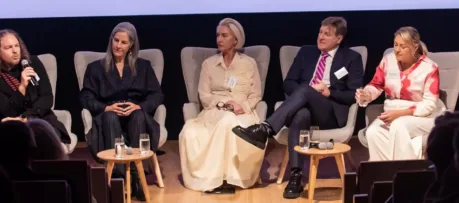How are children affected by Divorce in Australia? We know how vital children’s living arrangements are and it can often be complicated after a divorce. Parenting arrangements allow a family to come to an agreement about how their child will live post-separation. In most cases, parents and other family members understand the need to put a child’s safety and emotional well-being first. Parenting arrangements after separation or divorce (formerly referred to as “child custody”) need to be considered and decided upon. By law, the best interests of the child are always the most important consideration.
How Are Children Affected by Divorce in Australia?
When deciding upon parenting arrangements, the Court must consider the child’s well-being and weigh up the value of living with each parent. Aspects such as:
- Quality of life
- Access to education
- Living with other relatives or designated carers. Where a child will live, how often they spend time with each of their parents, the sharing of special event days such as birthdays, Christmas, and school holidays.
- How parents will make decisions about the care of their children once separatedThese are all issues of great importance which should be included in any agreement about children. The role that grandparents, step parents, and other important people in the lives of children must also be considered, and appropriately addressed according to the law.

Let us clarify a few things for you. The following questions are our most frequently asked questions (FAQ’s) regarding the effect of divorce on children in Australia.
What is Child Custody (parenting arrangements)?
When the parents of the child separate, differences in their views as to how to raise their child tend to become an issue. The law requires divorced parents to attempt to resolve those issues by mediation with a Family Dispute Resolution Practitioner (FDRP). If parents can’t reach an agreement, then it may be necessary to go to Court to get resolution of the dispute between them about how to raise their child.
Before meeting with the FDRP, it is a good idea to get advice from a family lawyer to discuss how the Family Law Act deals with parenting disputes. That lawyer can provide a helpful framework for a parent to participate in the mediation.
How much does it cost to hire a lawyer for parenting arrangements?
The cost depends on the issues in dispute. If, for example, parents can’t agree on which school their child should attend, that is a less complex issue than a full blown dispute over which parent their child should live with. Some issues can be resolved in the matter of months. Sometimes disputes can go on for much longer. Lawyers will generally charge for the time they spend helping a parent with their dispute. Whether the lawyer charges on an agreed lump sum or whether they charge per hour engaged, the bigger the dispute the more it costs.
Who pays attorney/lawyer fees in child custody cases?
The general rule is that each person pays their own lawyer’s fees and the Court fees in parenting disputes. Sometimes, if the Court believes that one parent has acted in a manner which has been completely unreasonable and without any objective merit, the Court may order that person to pay a portion of the other parent’s legal fees. Bear in mind though that costs orders in parenting matters are unusual.
How Are Children Affected by Divorce in Australia?
Can a Father be denied joint custody?
The Family Law Act is gender neutral. There is no inbuilt bias towards mothers or fathers. The Court is directed by the law to make a decision in a parenting dispute which is in the best interest the child as determined by the Court on an objective basis. The Court makes that decision after hearing the evidence from each of the parents and often from an independent social scientist that meets with the child and the parents and writes a recommendation for the Judge. Sometimes, in complex cases, the Court also appoints a separate lawyer to represent the child.
After weighing up all of the evidence, if it supports a shared care arrangement, then that may well be the result so long as the Court believes that it is practical to do so. That means, that the parents don’t live too far apart and they have similar parenting styles that will allow their child to grow and develop with consistent help from each parent.
If you have any further questions regarding the effect of divorce on children in Australia, please do not hesitate to contact our friendly team for assistance.
Contact Us
It may sound complicated, and at times it can be. However, all of our child custody lawyers are extremely mindful of the delicate nature of parenting issues and decisions which need to be made upon separation for children. Our high degree of expertise in children’s matters, and our familiarity with the requirements of the Court, allows us to act swiftly and effectively to ensure parenting issues can be resolved in a timely fashion consistent with the best interests of your child or children.
Watts McCray’s child support lawyers are also regularly involved in acting independently for children when the Court deems it appropriate. Contact us today.






